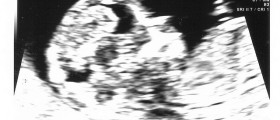
A miscarriage is defined as a pregnancy that ends at any period in the first 20 weeks of the pregnancy.
It is also sometimes referred to as a spontaneous abortion. Though the cause of a miscarriage is generally something physical, women can often experience numerous emotional complications such as anger, grief and depression because of the event. According to the most recent statistics, about 20 to 50 percent of pregnancies end in miscarriages, most of which occur in the early weeks.
Sometimes this occurs in the early stages when the pregnancy is not even detectable, therefore, a woman may not know if she had a miscarriage sometime, or was pregnant at all. However, one pregnancy is clear and can is detected, then about ten percent end in miscarriages. In most cases, miscarriages occur without a known cause. Seventy percent of the cases of spontaneous abortions are the result of complications and defects in the chromosomal development of the fetus.
Other complications that can cause a miscarriage include infections, trauma and systematic diseases such as diabetes and antiphospholipid syndrome. Women with uterine fibroids are sometimes at a higher risk of having a miscarriage.
Women who smoke, take drugs or abuse alcohol during the pregnancy increase their chances of having a miscarriage. There are also some common rumors that are not true. For example, exercise and having sex while pregnant do not result in miscarriages.
As was said earlier, most miscarriages occur early, in the first trimester of the pregnancy, however, they can occur in the second one as well. There are physical complications that can account for miscarriages in the second trimester, such as uterine and cervical abnormalities. Some signs of a miscarriage are often spitting, bleeding or cramps, though they may vary.
Most early miscarriages are not even noticed because they are often mistaken for a heavier than usually menstrual cycle. They usually do not cause and physical complications for the women.
However, sometimes dead tissues from the miscarriage can remain in the womb and cause infections. Even though the physical complications are uncommon, emotion ones can be very severe. Women often feel terrible sadness and grief after a miscarriage, because they have lost their unborn child. In some cases, a woman could drift into a state of serious depression after a miscarriage.
She should also wait several months before trying to conceive again, because time is needed to recover from both the physical and psychological complications of losing an unborn child.
















Your thoughts on this
Loading...